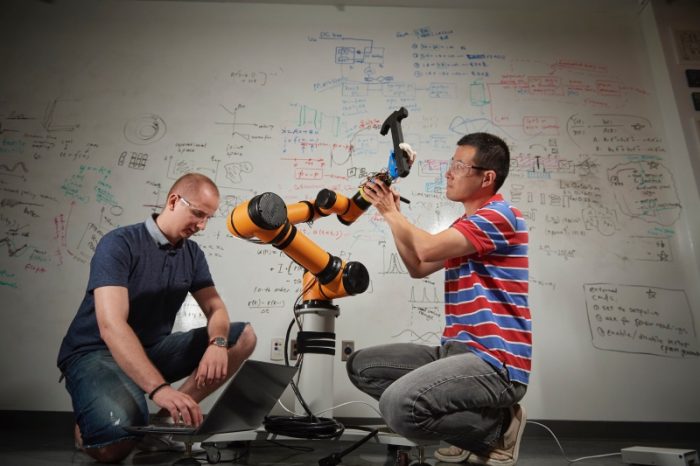NJIT’s designation in 2019 as an R1 university by the Carnegie Classification®, indicating “very high research activity,” capped NJIT’s swift, strategic rise as a research university. In 1979, the university’s research expenditures totaled $375,000; today they reach $170 million. Since 2014, total external R&D expenditures have been nearly doubled.
In its strategic plan, NJIT names research as one of the university’s five critical priorities and places it at the very center of university life, emphasizing four core areas of multidisciplinary research: data science and information technology, the nexus of life sciences and engineering, sustainable systems, and a transdisciplinary category that addresses the large systemic challenges of “smart cities,” for example.

The university supports research in numerous ways, and takes seriously its role in nurturing talent on campus. Over the past four years, 12 young researchers have won CAREER awards from the National Science Foundation and Young Faculty Awards from the Department of Defense, described by the agencies as among the most prestigious.
Their work ranges from the development of novel soft solid materials such as smart gels used as sealants and valve controls to the creation of new methods to design lenses and mirrors to precisely control the intensity pattern and phase of light beams in applications such as optical data storage and astronomy.
In 2014, NJIT inaugurated its own seed grant program to support interdisciplinary projects between fields as diverse as architecture and biomedical engineering.
Over the past six years, NJIT has hired nearly 130 new faculty members across STEM and other disciplines, increasing its faculty from 268 in 2014 to a projected 345 by 2020. They include experts on topics such as machine learning, data analytics, biomaterials and biomechanics.

More than 80 new labs, centers and research institutes have been created for a total of more than 110. Each year, 350 undergraduate students spend significant time working closely with faculty in these hubs, including the 120 who returned to campus last summer to take part in research projects.
As part of a $400 million capital-building program, NJIT is transforming research and educational facilities on campus. The gut-level renovation of the five-story Central King Building and the construction of a new 24,500 sq. ft. Life Sciences and Engineering Center are bringing students and faculty new teaching and research labs.
NJIT’s new Microfabrication Innovation Center houses advanced equipment and a cleanroom environment for the fabrication of micro- and nanoelectronic and microfluidic devices and sensors that will transform technology across a range of areas and accelerate work on smart devices.












